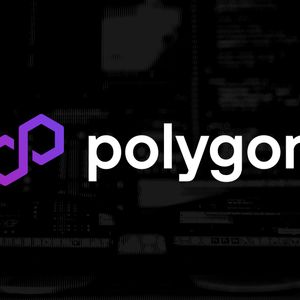2023-06-17 21:00:00
Polygon Proposes New Ecosystem Council
Polygon, the renowned Ethereum scaling solution, recently proposed a new decentralized governance model aimed at enhancing its network's security, upgradeability, and robustness. This proposal, revolving around the establishment of an "Ecosystem Council," will redefine how system smart contracts within the Polygon environment are managed and upgraded. This proposal indicates the continuous efforts by Polygon to strike a perfect balance between community-driven governance and efficient decision-making in a decentralized network. A New System for Decentralized Governance System smart contracts represent a fundamental element of the blockchain infrastructure. They can directly or indirectly influence user funds and the infrastructure's functioning. A crucial aspect of these contracts is their upgradeability, which allows seamless migration to improved versions under specific circumstances. The importance of this feature is evident in various Layer 2 (L2) solutions, such as Optimism, Arbitrum, and zkSync, where an efficient means of patching bugs and upgrading pivotal architecture components is required. According to the proposal, the Ecosystem Council would comprise technically proficient and value-aligned individuals, elected and removable by the community. This council will be responsible for performing timelock-limited upgrades to system smart contracts across Polygon networks, such as Polygon PoS and zkEVM. For example, in the case of non-emergency or routine proposals, the council will make a proposal and proceed with the timelock as usual. On the other hand, if there is a perceived threat to user funds due to potential vulnerabilities in smart contracts, the council will enact an Emergency State, freezing transactions to protect assets. The Polygon community will be empowered with three competencies: the election and removal of Ecosystem Council members, the ability to exit an Emergency State, and the power to veto any upgrade proposed by the Ecosystem Council. This model is expected to increase community engagement while retaining a level of control to prevent malicious activities. The Ecosystem Council: Balancing Efficiency and Decentralization The proposed model suggests the creation of an Ecosystem Council, a group consisting of reputable, technically adept, and value-aligned individuals. These individuals would be democratically elected by the community and could also be removed by them. The council's primary role would be to perform timelock-limited upgrades to the system's smart contracts across the Polygon networks, including the Polygon PoS and zkEVM. The governance model will allow the council to handle both routine and sensitive proposals. In the case of routine proposals, the council will make a proposal and proceed with the standard timelock protocol. However, if a potential vulnerability poses a risk to user funds, the council will enact an Emergency State, freezing transactions to protect the funds. To maintain a balance between efficiency and community engagement, Polygon proposes empowering the community with several competencies. These include the power to elect and remove Ecosystem Council members, the ability to exit the Emergency State, and the authority to veto any upgrade proposed and scheduled by the Ecosystem Council. By bestowing the community with these powers, Polygon hopes to increase the overall community engagement while maintaining a level of centralized control to prevent malicious activities. Navigating the Transition: Inviting Community Input While the proposed model promises improved governance and security, its rollout must be gradual and well planned, especially considering the live nature of the blockchain. To ensure a seamless transition, the Polygon team is inviting its community to participate in the process, providing feedback, and assisting in answering open questions. The community is particularly encouraged to contribute ideas regarding incentivizing participation in the model and establishing a robust and secure voting mechanism. Decisions around these aspects, like the general design principles, voting power proxy, and architecture, will be crucial to the model's success. The team is also considering the use of the $MATIC token as a voting power proxy, which would provide broad ecosystem inclusion and legitimize the Ecosystem Council. Polygon's proposed Ecosystem Council represents an exciting step towards more robust, efficient, and community-driven governance of system smart contracts. By integrating elements of both centralized and decentralized decision-making, the model aims to bring the best of both worlds to the Polygon network. This move could help Polygon maintain its reputation as a leading Layer 2 solution, offering an improved governance framework that values efficiency, security, and community inclusion. Disclaimer: This article is provided for informational purposes only. It is not offered or intended to be used as legal, tax, investment, financial, or other advice.
Share at:












